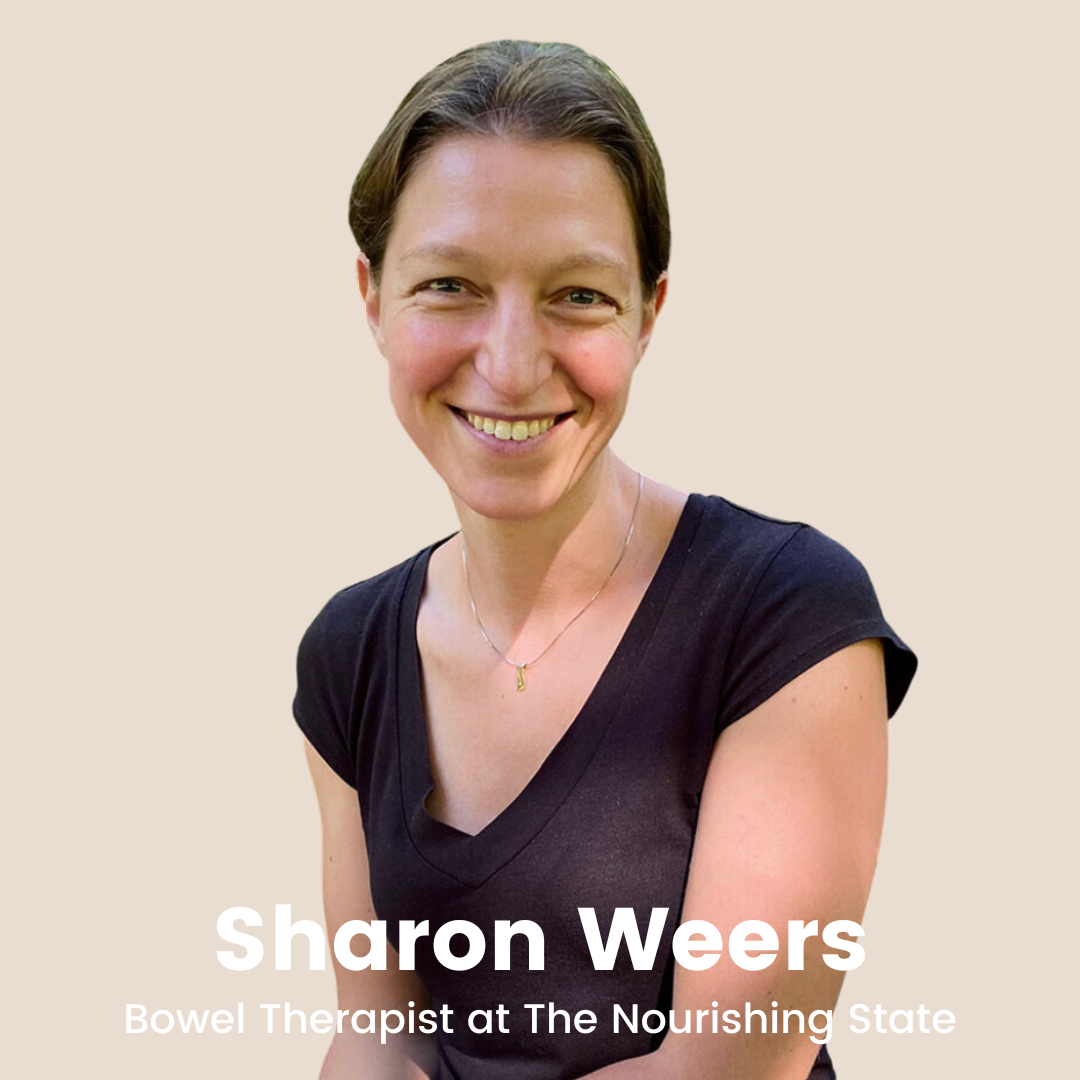We had the pleasure of interviewing Sharon Weers, a nutritionist at The Nourishing State. Sharon is a 37-year-old nutrition coach from the Netherlands and has two children. She works part-time as an elementary school teacher and has been with The Nourishing State three days a week since September. Her story inspires many who are dealing with irritable bowel syndrome (PDS) and are looking for ways to reduce their symptoms and achieve a better quality of life.
A Renewed Approach to Nutrition
Sharon has long had an interest in nutrition and earlier in her career worked as a nutrition coach at another company. There, the focus was primarily on counting calories. She soon realized that this approach was not effective and was not improving her clients. Although they did lose weight, they did not feel optimal and were still encountering obstacles. This insight brought her to The Nourishing State, where she took a new direction.
Sharon decided to delve into Orthomolecular therapy and took additional training in this area. She learned that it is essential to look at the individual and the food itself, to understand what the body needs. Instead of just focusing on what can and cannot be eaten, she focused on understanding the impact of food on the body and how nutrients can provide energy and building blocks.
Now that she is no longer focused on calories, since it is not as relevant, Sharon began studying blood tests. She examines her clients' symptoms and works with them. It is interesting to know where in the body there are possible deficiencies. This allows her to take targeted action and focus on the diet itself, not just what is consumed. She looks at the best ratios and other factors that are important. Everything becomes much more personal.
Consuming the right nutrients is now very important. It is important to understand what nutrition does for you and how it makes you feel. It is crucial to nourish yourself rather than simply fill yourself up so that your body gets building materials and energy it needs.
Irritable Bowel Syndrome: A Personal Struggle
Three years ago, Sharon discovered she was suffering from irritable bowel syndrome (PDS). She was faced with abdominal symptoms and tried all kinds of things to find a solution, although she didn't quite know what was going on. After several doctor's visits, she was told that no physical cause could be found and thus it was PDS. She was told that she had to learn to live with this, since nothing could be done about it.
At the same time, Sharon was studying Orthomolecular nutrition and decided to experiment on her own initiative. Determined to find a solution, she tried several modifications to her diet herself and discovered that she could largely reduce her symptoms by avoiding certain foods. After undergoing a blood test, she found out she was sensitive to wheat and gluten. She reduced her consumption of these and even eliminated it completely for a time. In addition, she also decided to avoid sugars and lactose.
Today, Sharon can even occasionally eat bread again without symptoms, albeit in moderation. She has learned to be mindful of her diet and has discovered which foods aggravate her symptoms. Although it is still a personal struggle, she has achieved significant improvement in her PDS symptoms through her own experiments and dietary adjustments.
A Personalized Approach
It is important to note that the symptoms and severity of Irritable Bowel Syndrome (PDS) can vary from person to person. These symptoms include abdominal pain, a bloated abdomen, flatulence and changes in bowel movements. Sometimes symptoms may even occur that are not directly associated with the bowels, such as migraines. Before a diagnosis of PDS is made, other conditions can be ruled out after a visit to the doctor. It may take some time to be diagnosed, especially if no physical cause is found.
Sharon recommends using an elimination diet, where you eliminate certain foods from your diet and then slowly reintroduce them to observe how your body reacts to them. Usually people with PDS have a food intolerance and not a food allergy. It is important to eliminate foods first and then gradually reintroduce them. It is essential to get enough fiber from vegetables, as well as enough fats and protein. When adjusting your diet, it is important to look at the total package. Reducing fructose, carbohydrates, gluten, sugars and
lactose can have a positive effect. While PDS cannot be completely cured, the right food choices can lead to a life free of pain and discomfort.
A Day in the Life of a Bowel Therapist
A typical day for Sharon looks like this: she likes to start the day with a hearty breakfast, such as eggs. For lunch she often chooses grilled vegetables with protein like chicken, and dinner she usually shares with her family. Dinner consists of meat with vegetables, but she adapts it for herself, for example by substituting pasta for zucchini. She also teaches her children not to eat just anything and explains why certain products are or are not healthy. Her children show interest, ask questions and engage in conversation about it. She makes sure the basics of their diet are good, and then they can eat something extra delicious every now and then. However, this is not allowed indefinitely, and they learn to do so in moderation and choose quality.
As a teacher, Sharon sometimes watches what children bring in their lunchboxes and realizes that more often than people think, there are unhealthy foods like white bread and croissants in the lunchboxes. This does not feed the children, but only fills them up. Sometimes she also engages in conversation with the children about this. Since they are between 9 and 12 years old, they are old enough to talk about this.
Success stories from IBS patients
Sharon works long-term with her patients in counseling programs. She sees positive results where symptoms diminish or even disappear because, thanks to her help, her clients discover what nutrition works for them. They get to know their bodies and know what they can do, how to do it and how to apply it.
In addition to nutrition, stress management and relaxation are also important factors. Stress can worsen the symptoms of PDS, so it is essential to deal with it and reduce stress. Social occasions can also have an impact, such as consuming alcohol. Many people with PDS experience difficulty maintaining their diet because of sugars in alcohol. Drinking alcohol is often socially accepted. In addition, there are occasions such as birthdays when people pay less attention to their diet.
Interestingly, the majority of Sharon's clients are women. According to her experience, men are more likely to hesitate to seek help or try to find solutions on their own. However, women are dealing with hormones and a menstrual cycle that can affect PDS. Nevertheless, women do not necessarily experience PDS more than men.
With proper nutrition, it is possible to live symptom-free and pain-free with PDS. Nutrition plays a crucial role in managing symptoms. For Sharon, this is not only a professional occupation, but also a passion that she applies daily. It is very important to feed yourself and not stuff yourself.




Leave a comment
All comments are moderated before being published.
This site is protected by hCaptcha and the hCaptcha Privacy Policy and Terms of Service apply.